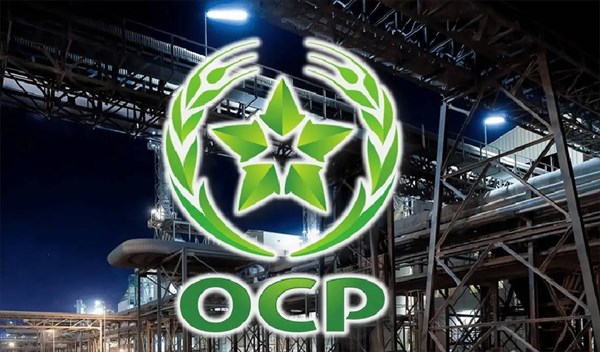At the International Agricultural Fair in Morocco (SIAM), one word echoes throughout the event: urgency. Climate urgency, food security urgency, water stress urgency. Against this backdrop, OCP – the world’s leading phosphate group – is laying out a clear vision: to transform agriculture sustainably while empowering those who work the land every day.
First focus: soil health. OCP is promoting smart and science-based fertilization through the “4Rs” approach – right source, right rate, right time, and right place – with tailor-made fertilizers like TSP (Triple Super Phosphate), enriched with calcium and high solubility. A green version, “Green TSP”, is part of the Group’s broader decarbonization strategy.
Thanks to the work of the Mohammed VI Polytechnic University (UM6P) and the INNOVX platform, OCP is developing advanced solutions including nano-fertilizers, microbial biofertilizers, and digital mapping. To date, over 52 million hectares have been analyzed and 3,500 personalized formulas developed.
Second pillar: water management. In a country where drought is now structural, OCP Green Water has emerged as a national leader in non-conventional water solutions. Combining seawater desalination and wastewater treatment, the Group has eliminated its dependence on freshwater for industrial use since 2024.
OCP also supplies drinking water to cities like Safi, El Jadida, and southern Casablanca, with plans to reach Marrakech, Khouribga, and others in 2025. The aim: full water autonomy through sustainable resources.
On the agricultural front, desalinated water is being used to support pilot irrigation models powered by sensors, weather platforms, and smart fertilization tools – designed to be replicated at scale.
Third axis: carbon farming. Through the Tourba program, over 2,000 Moroccan farmers are adopting conservation agriculture techniques. The goal by 2030: 6 million hectares across Africa and Latin America, with 7 million tons of CO₂ sequestered annually.
These practices turn soil into a carbon sink, unlocking new income opportunities for farmers via carbon credits. OCP is also investing in spectroscopy technologies to better analyze soil composition and refine carbon farming strategies.
For OCP, transformation begins with people. With its Al Moutmir program, 120 agronomists are deployed across 43 provinces, supporting more than 50,000 farmers — including growing numbers of women and youth — toward more sustainable and profitable practices.
Initiatives like ElleMoutmir, MyCOOP, and Farmer-to-Farmer empower rural communities, strengthen cooperatives, and enhance innovation diffusion. In 2024, the OCP Foundation supported 89,000+ beneficiaries, while UM6P trained over 1,500 agricultural professionals and backed more than 1,000 agritech startups.
In Mzinda and Meskala, OCP’s SP2M industrial platform is creating over 20,000 direct jobs while boosting phosphate and fertilizer production with a low-carbon footprint. Elsewhere, INNOVX’s MAVA and BADEE programs are scaling high-impact agricultural projects across Africa, with $800 million mobilized by 2030.
Through OCP Africa, the Group has already supported over 1 million smallholder farmers with programs like Agribooster and OCP School Lab — proving that agricultural performance must go hand in hand with social inclusion.




